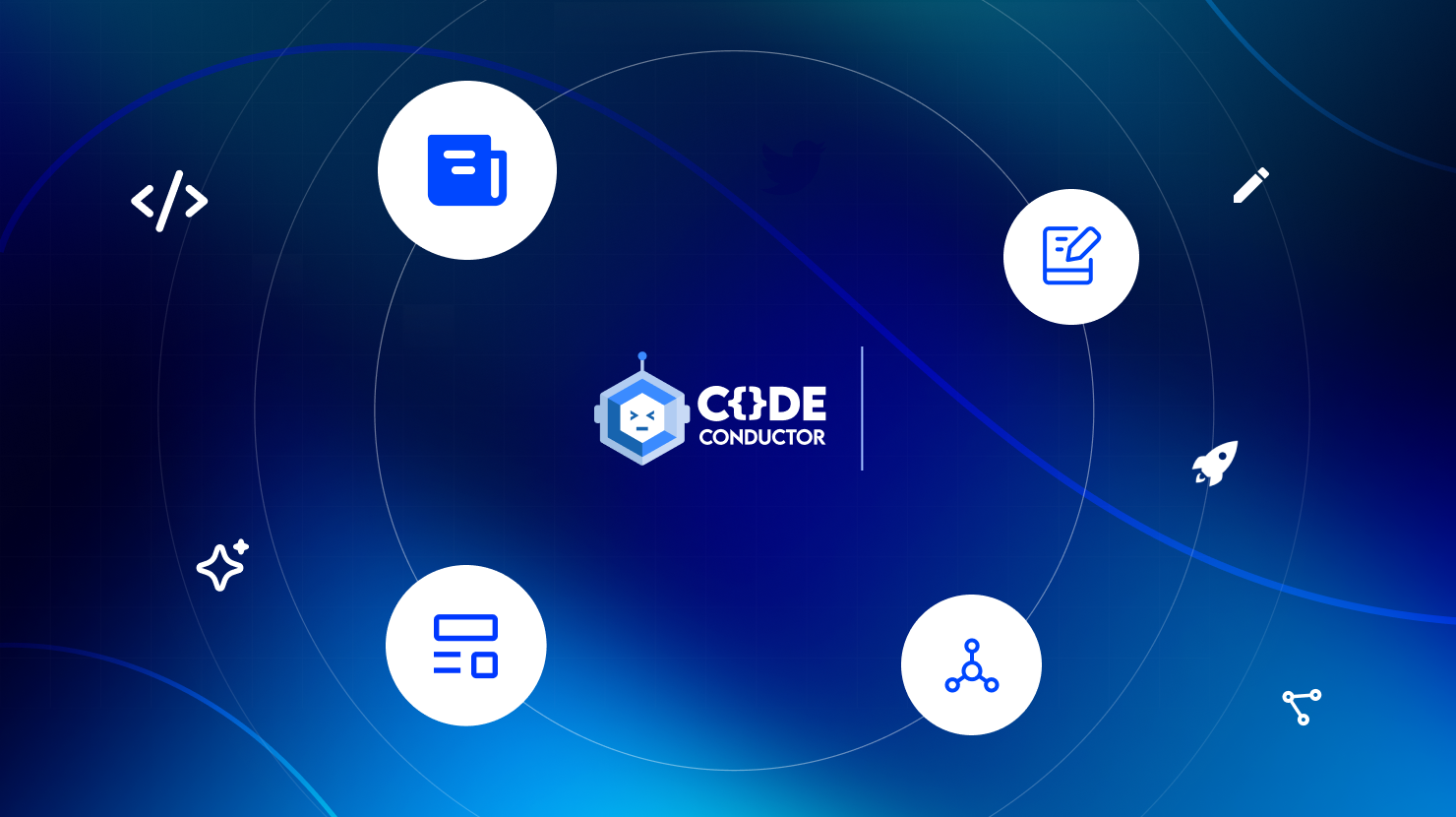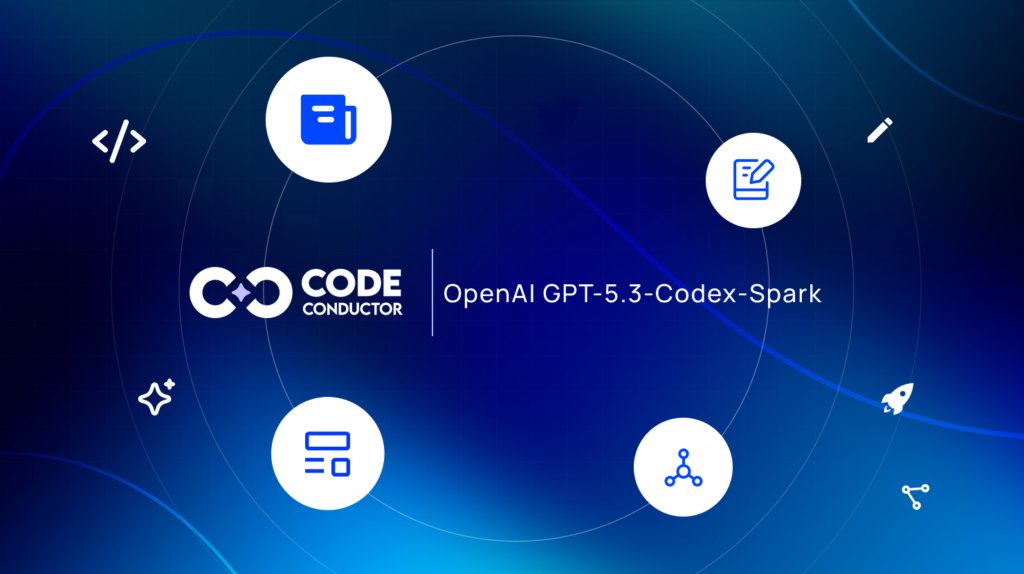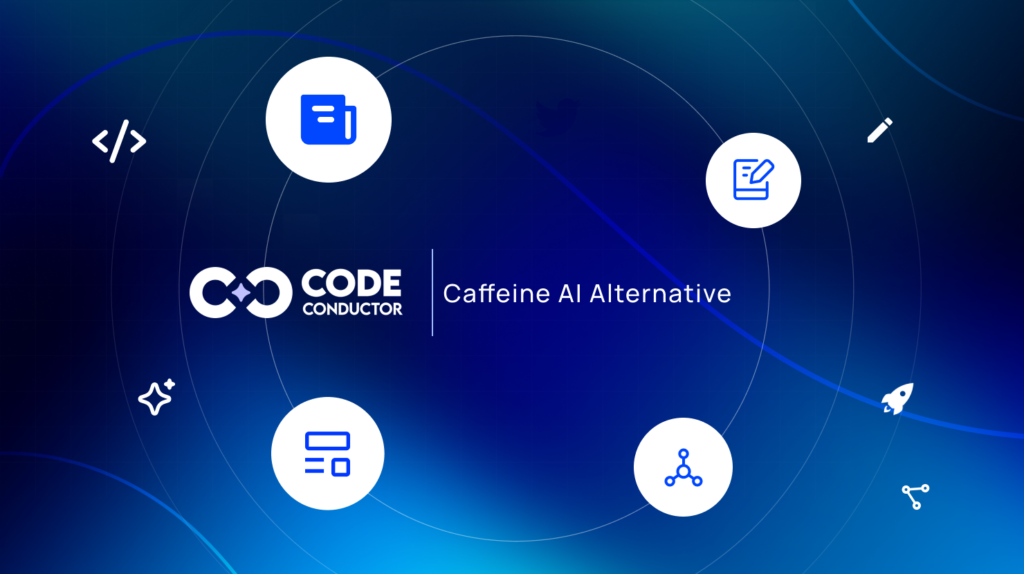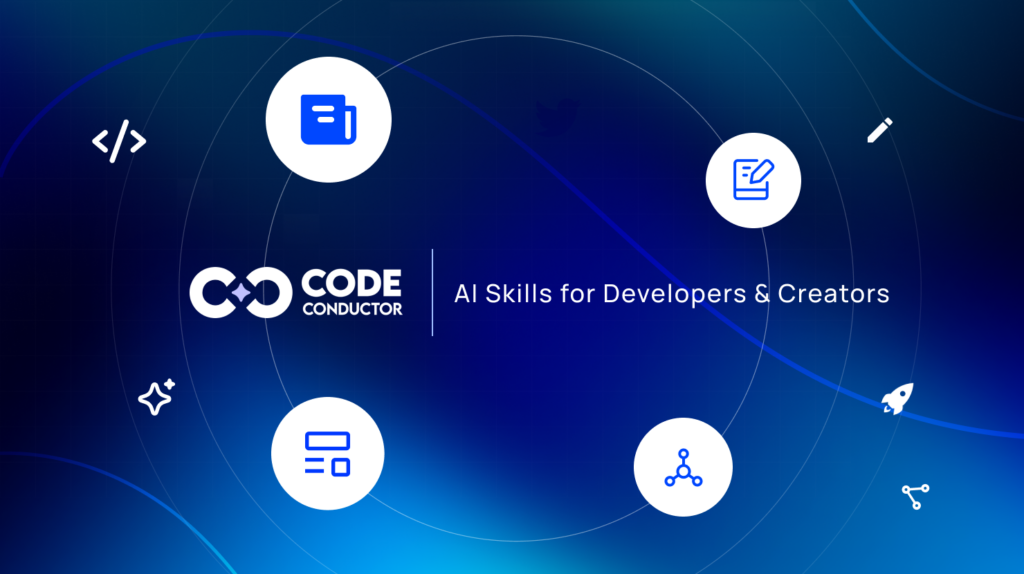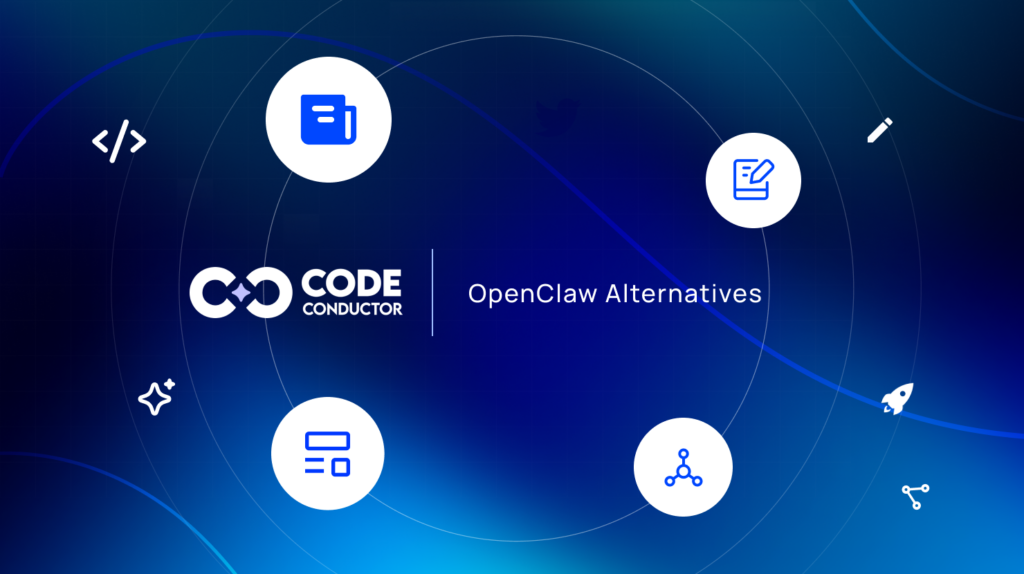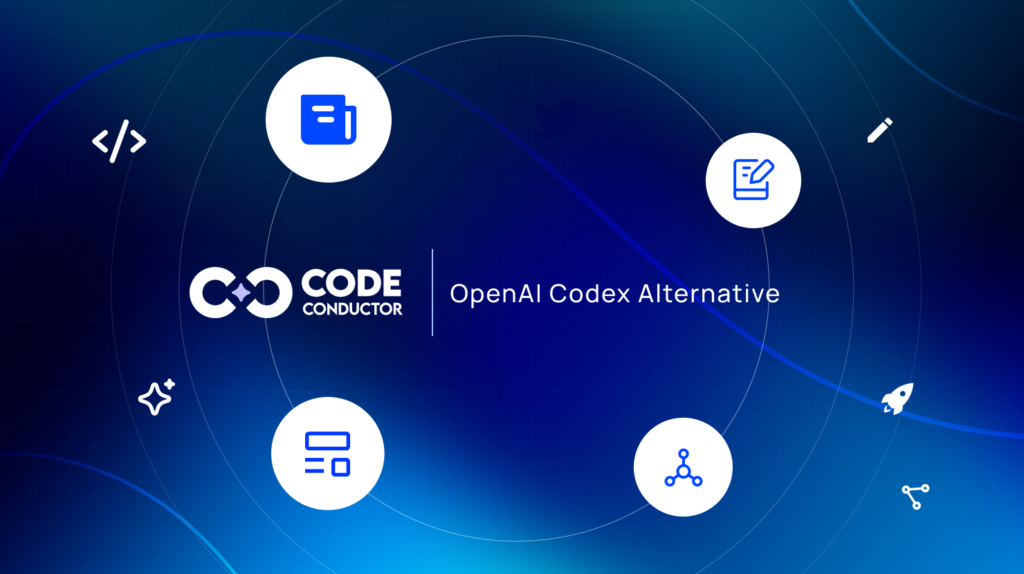Every big shift in technology sparks job fears. In the 1980s, it was mainframes and automation. In the 2000s, outsourcing. In 2026, it’s artificial intelligence. The worry is simple: if AI can write code, do companies still need junior developers?
The debate intensified after AWS CEO Matt Garman called the idea of replacing junior developers with AI “one of the dumbest things I’ve ever heard”. His remarks reignited a conversation that has split executives, startups, educators, and developers.
What’s at stake is the software talent pipeline. Junior developers have always been the training ground for tomorrow’s senior engineers and CTOs. If AI wipes out that entry-level layer, companies risk creating a serious skills gap in the next decade.
This article looks at what tech leaders are saying, how hiring is shifting, and why the smartest companies aren’t cutting juniors but reimagining their roles in the AI era.
In This Post
- Will AI Replace Junior Developers? What Tech Leaders Say
- Matt Garman (AWS CEO): “Cutting Juniors is the Dumbest Idea”
- Thomas Dohmke (GitHub’s Former CEO): Juniors Keep Teams Fresh
- Sundar Pichai (Google CEO): AI is an “Accelerator, Not a Replacement”
- Satya Nadella (Microsoft CEO): Fundamentals Still Matter Most
- Marc Benioff (Salesforce CEO) & Dario Amodei (Anthropic CEO): The Cautionary Voices
- Entry-Level Software Engineer Jobs 2025: Hiring Trends
- AI Coding Assistants for Beginners and Junior Developers
- Big Tech vs Startups: Do Companies Still Hire Junior Developers?
- AI vs Human Developers 2026: Replacement or Redefinition?
- AI Could Quietly Shrink Junior Opportunities
- Skills Needed for Junior Developers in the AI Era
- How Companies Benefit from Hiring Junior Developers in an AI World
- The Bottom Line: AI’s Impact on Software Engineering Careers
- FAQs
- Will AI replace junior software developers entirely?
- Is it harder to get a junior developer job in 2026?
- How are AI coding tools impacting junior developers’ productivity?
- What skills should aspiring junior developers focus on in the age of AI?
- Should companies still hire entry-level developers when AI can do so much?
- How can a junior developer stand out to get hired in 2026?
Will AI Replace Junior Developers? What Tech Leaders Say
Matt Garman (AWS CEO): “Cutting Juniors is the Dumbest Idea”
AWS chief Matt Garman pushed back hard on the idea of replacing entry-level developers with AI.
“That’s like, one of the dumbest things I’ve ever heard… How’s that going to work when ten years in the future you have no one that has learned anything?” – Matt Garman, AWS CEO
In his August 2025 comments, Garman pointed out that juniors are affordable, quick to adopt AI tools, and essential for long-term growth. His message to companies: keep hiring and training graduates “just as much as you ever have.”
Thomas Dohmke (GitHub’s Former CEO): Juniors Keep Teams Fresh
Former GitHub CEO Thomas Dohmke dismissed the idea that AI makes junior developers irrelevant, calling it “overblown.”
He argued that juniors bring new energy, diverse backgrounds, and fresh thinking. Many are already AI-native, having used ChatGPT or Copilot during school, which means they can contribute quickly (itpro.com).
GitHub has continued to run internship programs and give early-career developers opportunities, underscoring Dohmke’s view that juniors remain vital.
Sundar Pichai (Google CEO): AI is an “Accelerator, Not a Replacement”
Google CEO Sundar Pichai sees AI as a productivity booster, not a replacement for humans.
“AI is making engineers more productive by eliminating tedious tasks and enabling them to focus on more impactful work.” – Sundar Pichai. He said Google plans to hire more engineers in 2025 because AI-powered productivity means the company can do more with the same workforce.
While he acknowledged concerns such as Anthropic CEO Dario Amodei predicting AI could affect half of junior white-collar jobs within five years, Pichai stressed that new opportunities will emerge alongside disruptions..
Satya Nadella (Microsoft CEO): Fundamentals Still Matter Most
Microsoft CEO Satya Nadella revealed that AI now writes 20–30% of Microsoft’s internal code.
Even so, he insists juniors must focus on the basics: “Having the ability to think computationally matters a lot”. He believes AI can help juniors grow faster into architect-level roles, but only if they build strong fundamentals first.
Marc Benioff (Salesforce CEO) & Dario Amodei (Anthropic CEO): The Cautionary Voices
Not everyone is optimistic.
- Marc Benioff announced Salesforce would stop hiring new software engineers in 2025, citing AI-driven productivity gains. Instead, the company shifted investment toward sales roles.
- Dario Amodei (Anthropic CEO) warned that entry-level jobs are squarely “in the crosshairs” of automation.
These cautionary views highlight that while AI may not remove all junior jobs, it is already reshaping hiring decisions.
Across Big Tech, the dominant view is clear: AI should support juniors, not replace them. Leaders like Garman, Dohmke, Pichai, and Nadella see juniors as essential, even if their day-to-day tasks evolve.
But as Benioff and Amodei’s positions show, companies are divided. Some are doubling down on junior talent, while others are pulling back. The outcome of this debate will shape not just the future of junior developer jobs but the resilience of the entire software workforce.
Entry-Level Software Engineer Jobs 2025: Hiring Trends
If you’re an aspiring software engineer in 2025, the entry-level job market is more challenging than it has been in years. After a decade-long hiring boom, software developer postings have plunged to pandemic-era lows.
According to Indeed data via FRED, listings are down ~35% from pre-2020 levels and ~70% from their 2022 peak.
This slowdown has hit juniors the hardest:
- Entry-level postings dropped 60% between 2022 and 2024.
- Google and Meta are hiring ~50% fewer new grads compared to 2021.
- Salesforce announced it will halt junior hiring for 2025.
- Klarna froze developer hiring altogether in late 2023. (They hired humans again, because this strategy failed)
Entry-Level Roles Hit Hardest
The impact on new graduates is clear:
- CS grads now face a 6.1% unemployment rate, while computer engineers are at 7.5%, one of the highest across majors.
- The New York Times has profiled graduates who send out hundreds of applications and, in some cases, even apply to fast-food chains after being “gaslit” into believing a coding degree guarantees security.
Why the Pullback?
Two key factors are driving these reductions:
- Economic slowdown after the COVID-era expansions.
- AI-driven efficiencies, according to a 2025 LeadDev survey, have led 54% of engineering leaders to plan hiring fewer juniors, thanks to AI copilots that enable seniors to handle more.
Is It All Bad News?
Not entirely. There are still opportunities, especially in startups and growth sectors like AI, cloud, and cybersecurity. But these companies tend to prioritize:
- Candidates with 2+ years of experience
- Those who can leverage AI tools and wear multiple hats. Internships, open-source contributions, and showcased project experience are now baseline expectations.
For juniors, this means that internships, open-source contributions, and AI literacy are quickly becoming baseline expectations.
The path is steeper, but not closed. Juniors who showcase AI-native skills and build demonstrable projects can still break in, though the days of six-figure offers straight out of school have cooled.
AI Coding Assistants for Beginners and Junior Developers
One reason companies feel they can manage with fewer junior developers is the rise of AI coding assistants. By 2025, tools like GitHub Copilot, OpenAI Codex/ChatGPT, and their competitors will have become standard in the workflow. These “pair-programmer” AIs are changing how new engineers learn and contribute for better and worse.
Productivity Gains with AI Tools
Today’s AI-native juniors often arrive already fluent in tools like Copilot or ChatGPT. Instead of spending weeks learning syntax, they can start contributing almost immediately.
One engineering manager noted: “One of our newest hires joined the team with their toolkit… On day one, they scaffolded a feature using prompts and even solved a tricky validation bug with AI help.”
The data backs this up:
- A GitHub study found developers using AI assistants completed tasks up to 56% faster, with juniors seeing the most significant gains.
- IBM research shows that less-experienced programmers gain more speed and learning velocity from AI than seniors.
By offloading boilerplate coding and routine debugging, juniors can focus on architecture, integration, and product-level work. Some leaders even view AI as a learning accelerator rather than a crutch..
Mentorship in the AI Era
The challenge: if AI generates the code, did the junior actually learn it?
Mentorship is evolving to address this. Instead of focusing on loops and syntax, senior engineers now guide juniors on:
- How to assess AI output
- When to question AI suggestions
- How to debug machine-written code
The first lesson may no longer be how to write a loop, but how to engineer prompts. Critical thinking, cross-checking AI answers against docs, and rejecting bad code is now as important as syntax mastery.
Skills Juniors Might Miss
AI now handles many of the “grunt work” tasks that used to build foundational skills:
- Boilerplate coding – Copilot autocompletes functions/classes.
- Debugging trivial issues – Codex/ChatGPT suggests quick fixes.
- Writing unit tests – AI frameworks generate test cases automatically.
- Documentation & comments – Language models draft inline explanations.
While this boosts efficiency, it skips the trial-and-error lessons that shaped many senior engineers. As one Redditor vented:
Dealing with Junior dev and AI usage.
byu/Ok_Obligation2440 inExperiencedDevs
No surprise that 38% of engineering leaders fear juniors will get less hands-on experience in AI-heavy workflows.
The Evolving Junior Role
Optimists argue this is the natural evolution of the role. As tech lead Enrico Piovesan puts it: “Today’s juniors are not yesterday’s juniors. They emphasize breadth over depth and orchestration over authorship.”
In practice, a junior in 2026 may not know how to hand-code a sorting algorithm, but they can prompt AI to generate one, then spend their time on higher-level logic, API integration, and feature development.
The result is clear: AI raises productivity, but training outcomes are mixed. To adapt, many companies are reshaping onboarding programs with modules like “How to Work with AI Assistance” and pairing juniors with mentors who specifically review AI-generated code. The goal isn’t to ban AI, but to ensure juniors still learn the “why” behind the code, gaining a fundamental understanding, while moving faster with modern tools.
Big Tech vs Startups: Do Companies Still Hire Junior Developers?
For years, companies like Google, Meta, and Salesforce have hired hundreds of entry-level engineers every year. These juniors were seen as long-term investments, future technical leaders who could grow into mid-levels, principals, and even CTOs.
Today, Big Tech still talks up the importance of junior talent. Leaders at GitHub and AWS have been vocal about the need to keep hiring juniors, describing them as vital to innovation and the long-term pipeline.
But the hiring strategy has changed. Instead of bringing in large rookie cohorts, companies now focus on a smaller pool of “AI-ready” juniors, candidates who already come with internships, research projects, or proven AI skills.
Big Tech still invests in juniors, but the bar is higher and the class sizes are smaller.
Startups: Pragmatic, AI-First Hiring
Startups and smaller scale-ups take a very different view from Big Tech. With lean budgets and constant pressure to ship, many founders calculate that one experienced engineer with AI tools can outperform two juniors who need months of training.
As one recruiter explained: “Startups want ‘cracked’ engineers… Length of experience doesn’t matter after 2 years, but before that, it’s tough.” This mindset effectively creates a “2-year experience minimum” in many startup job posts, shutting out new graduates.
That said, some startups do see an opportunity:
- Lower cost hires: Juniors can be a budget-friendly way to grow a team.
- AI-native advantage: Juniors fluent in prompt engineering, Copilot, or tuning smaller AI models may even outperform a mid-level engineer who hasn’t adapted.
Still, the dominant startup mindset is “lean and mean.” Teams hire fewer people, expect immediate output, and let AI handle much of the grunt work.
Mentorship: The Missing Middle
The sharpest divide between Big Tech and startups is in mentorship.
- Big Tech can afford to pair juniors with mentors, absorbing the short-term hit in exchange for long-term growth.
- Startups, racing to ship features, often can’t. Instead of seniors guiding juniors, many rely on AI tools as a substitute, leaving juniors without the traditional apprenticeship that builds careers.
As one engineer warned: “Rather than have seniors define work for juniors, you instead focus seniors on using AI to generate code, creating a gap where juniors would find their first jobs”.
The Emerging Split
- Big Tech: Publicly affirms juniors’ importance but hires fewer, more elite candidates.
- Startups/SMBs: Often skip juniors, preferring seniors who can deliver with AI immediately. A handful bet on AI-native juniors, but most take a short-term view.
This divide could shape the future developer ecosystem. Big Tech still invests in growing the next generation. Startups, by contrast, see AI as a shortcut. The risk? Today’s efficiency gains could lead to a long-term talent shortage.
AI vs Human Developers 2026: Replacement or Redefinition?
The Optimistic View: AI as a Supercharger for Juniors
The optimistic camp, including me, believes that AI won’t replace junior developers; instead, it will make them more powerful.
An AI-native junior developer can contribute from day one. By automating repetitive coding, AI frees new engineers to focus on problem-solving, design, and creative exploration. As Enrico Piovesan notes, “The AI-native junior developer might be more powerful than any generation before,” because they can build and learn faster.
Forward-thinking companies like CodeConductor are already integrating AI into training and onboarding, ensuring juniors learn to use AI responsibly while working on real projects that sharpen their skills.
Why Companies Still Need Entry-Level Developers
Optimists also warn against eliminating juniors. Junior developers are the seniors of tomorrow. If every company only hires experienced engineers, the talent pipeline will dry up.
Everyone is looking for a senior today, but nobody is thinking about the seniors of tomorrow. Juniors also bring fresh perspectives, diverse backgrounds, and challenging questions that AI cannot replicate.
In this view, AI won’t erase junior roles; it will evolve them. New career paths may even emerge, such as:
- AI Prompt Engineers
- AI Ethics Specialists on Dev Teams
- Hybrid coding + AI training roles
These could become the new entry points for early-career developers.
AI Could Quietly Shrink Junior Opportunities
The concern isn’t that AI will instantly replace junior developers, but that it will gradually reduce entry-level roles. If one senior engineer with AI can handle the work of several juniors, many companies may stop creating junior positions altogether.
This risks creating a “hollowed-out career ladder”—plenty of seniors at the top, AI tools doing the grunt work at the bottom, and very few juniors learning the craft in between.
Why This Is Risky
Veteran engineers like Robert Baillie warn that:
- Teams with seniors + AI, but no juniors, cut off the future talent pipeline.
- Teams with a few juniors but no mentors leave new hires without guidance.
Either way, the industry loses the steady development of new skills.
Evidence of the Trend
There are already signs that this erosion is happening:
- Junior hiring has sharply declined since 2022.
- CS graduate unemployment is rising.
- Marc Benioff announced that Salesforce will hire “no new engineers” in 2025.
As Baillie noted: “It’s rare that an organization sees an increase in productivity and doesn’t also see an opportunity to cut costs.”
The Bigger Risk
The short-term savings from hiring fewer juniors could backfire. Without a steady stream of early-career developers, companies may face a shortage of mid-level talent in just a few years.
The Balanced Reality: Tougher, But Not Impossible
Both sides agree on one thing: AI is transforming junior developer roles.
- Optimists say juniors who adapt will thrive as the first AI-native generation of engineers.
- Pessimists warn that neglecting juniors today could hurt the industry tomorrow.
In reality, 2026 sits somewhere in between. Companies are hiring fewer juniors, but not zero. AI is automating repetitive coding, but juniors who are AI-ready remain valuable.
The future of junior developers will likely be hybrid:
- Use AI wherever it adds value.
- Provide mentorship and growth opportunities to help humans continue advancing.
One thing is sure: tomorrow’s juniors must be adaptable, continuously learning, and comfortable working alongside AI.
Skills Needed for Junior Developers in the AI Era
What do these AI-driven trends mean for people on the ground, both junior developers starting in 2026 and the companies that might hire them? Let’s start with the developer side.
For Aspiring Junior Developers
1. Embrace AI as Your Ally, Not Your Replacement
Learn to use tools like GitHub Copilot and ChatGPT as part of your daily workflow. Employers now expect juniors to be AI-native. The best juniors use AI as a learning tool, not a crutch, by checking its output, understanding why it works, and applying that knowledge independently.
Interview tip: Be ready to share concrete examples of how you’ve used AI to build a project, debug faster, or solve a tricky problem.
2. Build Strong Fundamentals and Computational Thinking
Don’t skip the basics just because AI can generate code for you. A solid understanding of algorithms, data structures, debugging, and design principles will make you stand out from those who only know how to prompt.
As Microsoft CEO Satya Nadella says, “Having the ability to think computationally is important” for long-term success.
Pro tip: Juniors who understand the inner workings will always have an edge over those who just copy AI outputs.
3. Showcase Projects and Real-World Experience
In a competitive market, a degree alone won’t cut it. You need to prove you can apply your skills.
- Build personal coding projects (bonus if they use AI/ML elements)
- Contribute to open-source projects
- Launch a portfolio website to showcase your work
- Land internships or apprenticeships (the best shortcut to a full-time job)
- Join hackathons or freelance gigs to show initiative
Even small projects demonstrate you can move from theory to practice.
Stop wasting time on job boards. This guide on how to land a software engineering job fast is packed with real hacks recruiters don’t tell you, with insider tricks to get noticed first.
4. Flaunt Your “AI-Native” Edge
Today’s juniors grew up using automation, don’t downplay it, highlight it. Show you can hit the ground running in an AI-enhanced codebase.
Examples to list on a resume or mention in interviews:
- “Built a Python script that automated a data pipeline.”
- “Integrated OpenAI’s API into a student project.”
- “Used Copilot to prototype features in React rapidly.”
5. Focus on Problem-Solving and Higher-Level Skills
Since AI handles a lot of repetitive coding, you need to excel at the things machines can’t:
- Creative problem-solving
- System architecture
- User-focused design thinking
- Debugging complex issues
- Writing clear documentation
- Communicating technical ideas
- Collaborating effectively with teams
Building these higher-level skills shows you’re not just a coder, you’re an engineer in the making.
How Companies Benefit from Hiring Junior Developers in an AI World
1. Maintain a Strong Talent Pipeline
Hiring juniors is succession planning for your engineering team. Cutting them may boost short-term productivity, but it creates long-term risk.
As AWS CEO Matt Garman warned, if you stop hiring juniors today, in 10 years you’ll face a serious experience gap. Senior engineers eventually retire or move on; you need the next generation ready to step up.
2. Onboard and Train Juniors in an AI-Inclusive Way
Mentorship must evolve for the AI era. Training should cover AI best practices alongside coding fundamentals:
- Pair juniors with mentors who guide them in both coding and AI usage.
- Update code reviews to include checks for AI-generated code quality.
- Encourage juniors to question AI outputs and learn from corrections.
This way, you benefit from AI’s boost while still building engineers with solid foundations.
3. Leverage Juniors’ Fresh Perspectives and AI Fluency
New grads often bring unique advantages:
- Latest academic knowledge in languages, frameworks, or AI tools.
- A “beginner’s mind” that sparks creative questions and fresh approaches.
- Comfort with AI assistants like Copilot or ChatGPT is widespread, as many are true AI natives.
With proper supervision, juniors experimenting with AI can drive innovation from the bottom up (itpro.com, medium.com).
4. Consider the Cost/Benefit Beyond Salary
Juniors are relatively inexpensive hires and, with AI-enhanced workflows, they can become productive quickly.
The ROI of hiring juniors includes:
- Mentorship dividends – a small investment of senior time pays off long-term.
- Cultural benefits – teams gain energy from watching juniors grow.
- Future-proofing – today’s juniors become tomorrow’s mid-level and senior engineers.
Don’t just measure ROI in quarterly metrics; factor in the cultural and organizational payoff.
5. Avoid Over-Reliance on AI Alone
Cutting too many juniors and leaning only on AI creates risks:
- Lower code quality and creativity result from the lack of fresh human oversight.
- Senior burnout from handling only reviews or AI cleanup.
The sustainable strategy is balanced: let AI handle repetitive work, while juniors learn, contribute, and grow. This ensures immediate productivity and long-term resilience.
The Bottom Line: AI’s Impact on Software Engineering Careers
- For aspiring developers: Adapt, upskill, and leverage AI tools, but focus on strengthening the human skills that machines cannot replicate.
- For companies: Don’t eliminate entry-level roles. Use AI to enhance junior training, not replace it.
The future of junior developers will be hybrid. Instead of spending all their time on boilerplate code, they’ll work alongside AI, handling higher-level engineering challenges and building lasting careers. Companies that nurture juniors now will build stronger, future-proof teams.
Despite the hype, the evidence is clear: junior developers are not going away in the AI era. Instead, their role is evolving.
AI tools will strip away the grunt work, freeing juniors to learn faster. Companies that cut juniors entirely risk hollowing out their future workforce. Those who embrace AI-assisted juniors, while keeping mentorship intact, will be the ones still innovating a decade from now.
As AWS’s Matt Garman put it, replacing juniors with AI isn’t just shortsighted. It’s one of the dumbest things you could do.
FAQs
Will AI replace junior software developers entirely?
A: No, AI will not completely replace junior software developers. What’s changing is the nature of their work. AI coding assistants can generate boilerplate code, automate repetitive tasks, and even help with debugging. However, human developers are still needed for creative problem-solving, architectural decisions, and quality oversight of AI output.
Industry leaders emphasize that entry-level developers are still essential to maintain a strong talent pipeline and bring fresh perspectives into engineering teams. AI will replace certain tasks, not the developers themselves. Those who learn to work alongside AI will continue to be in high demand.
Is it harder to get a junior developer job in 2026?
Yes, the job market for junior developers in 2026 is more competitive than in previous years. Software job postings for entry-level roles have dropped since 2022, and unemployment rates for computer science graduates have risen to around 6–7%.
Many companies have slowed or frozen junior hiring due to economic uncertainty and AI efficiency gains. This means aspiring developers often need to apply for more roles, build stronger resumes, and expect longer job searches.
That said, opportunities still exist, especially for junior developers with AI skills, hands-on project experience, and adaptability.
How are AI coding tools impacting junior developers’ productivity?
A: Overall, AI tools are boosting productivity for junior developers. Platforms like GitHub Copilot and ChatGPT help juniors write code faster, reduce errors, and learn on the job.
Research shows that developers using AI assistants can complete coding tasks up to 56% faster. Juniors can use AI for scaffolding code, debugging, and experimenting with new techniques.
However, there’s a learning curve. Juniors still need to understand the fundamentals of coding to ensure AI-generated code is correct. With proper mentorship, AI tools can accelerate a junior developer’s growth. Without guidance, they risk over-relying on AI.
What skills should aspiring junior developers focus on in the age of AI?
A: To stay competitive, aspiring junior developers should focus on hybrid skills:
- Strong coding fundamentals, algorithms, data structures, debugging, and version control.
- AI tool proficiency, learning how to use GitHub Copilot, ChatGPT, and AI-enhanced IDEs effectively.
- Machine learning basics, understanding prompts, models, and automation.
- Soft skills, problem-solving, system design, and communication.
As Microsoft CEO Satya Nadella puts it: “Getting the fundamentals right matters a lot.” Developers who combine strong fundamentals with AI-assisted workflows will stand out in 2026.
Should companies still hire entry-level developers when AI can do so much?
A: Yes, companies still benefit from hiring junior developers, even in an AI-driven workplace. Here’s why:
- Juniors bring new perspectives and creativity.
- They grow into tomorrow’s senior developers.
- AI still requires human oversight and contextual understanding.
- Juniors can manage smaller tasks with AI support, freeing senior engineers for complex work.
Leaders at Amazon Web Services even argue it’s “the dumbest thing” to stop hiring juniors, given their low cost and high growth potential. The smarter approach is selective hiring paired with AI-enhanced training programs.
How can a junior developer stand out to get hired in 2026?
A: The key is to prove you’re AI-ready and adaptable. Here’s how:
- Build a portfolio that showcases projects using AI or automation.
- Highlight internships, real-world projects, or freelance work.
- Demonstrate fast learning ability (e.g., mastering a new framework quickly).
- In interviews, share examples of solving problems with AI tools like Stack Overflow or ChatGPT.
- Show a growth mindset and willingness to be mentored.

Founder CodeConductor

